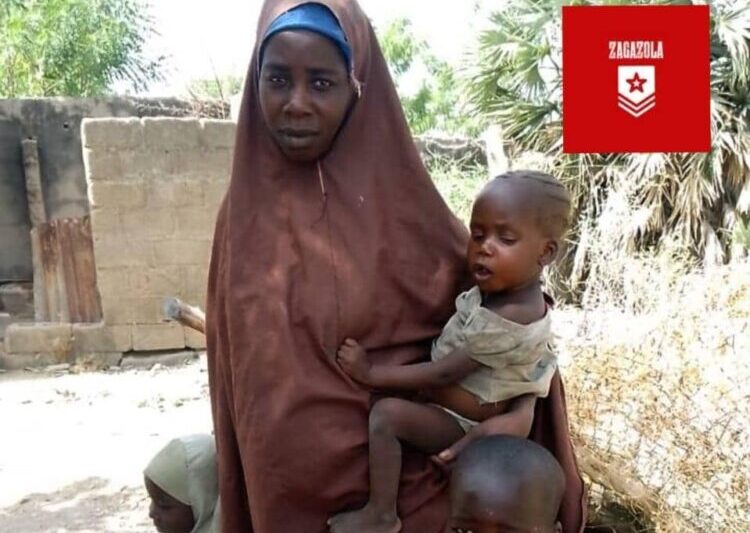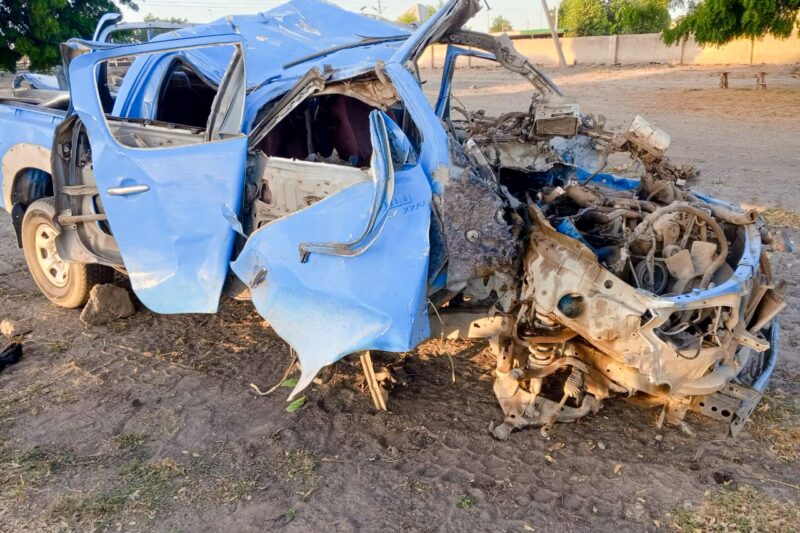Thursday evening marks the end of the holy month of Ramadan − a time when Muslims worldwide celebrate Eid al-Fitr known as the festival of breaking the fast.
Traditionally Muslims attend communal prayers, sweet dishes are prepared at home and gifts are given to children and to those in need.
But many Muslims in Maiduguri and other parts of northeastern Nigeria have not been able to prepare sufficiently for Eid because of poverty. They simply do not have the means to celebrate the festival and they find it hard just to put food on the table.
With this in mind, the National Association of Huffazul Qur’an in Maiduguri, in collaboration with Imams for Peace, Unity and Progress, donated Sallah − prayer − clothes to 45 children in need.
Yagana Zarami, a blind mother of three daughters, two of whom received Sallah clothes, said she was grateful for the help. “I am disabled and cannot work. My children desperately need help but there is no one to give it to them. They do not go to school, even though they should do. But I cannot afford to enrol them.
“I was pregnant when their father died. Most days the children and I go to the roadside near the bank to beg for food and money. Because I am blind and poor, I never thought my daughters would get new clothes for Eid. I am grateful for the help we have been given,” Zarami said.
She thanked the association and the imams.
“My children will celebrate Eid with their friends – and they will be wearing new clothes.”
Fatima Mohammed, a mother of four, two of whom received Sallah clothes, said she was grateful to the association and imams for their kindness.
She said her family was poor and it was difficult to get enough money to feed them.
“We often go to bed hungry. We’ve been in this difficult position for about four years. Although some people have helped us, many get tired of supporting us. It is a constant battle with no end in sight,” Mohammed said.
Abubakar Gambomi, chairman of the National Association of Huffazul Qur’an, said the society was established to help those in need.
“There are so many people in Borno State who are living in poverty. Some cannot even afford to buy food on a daily basis, let alone have money to prepare for and celebrate Eid.
“Everywhere you look you see young children of school age – almajiris − roaming the streets in the quest for survival. Many do not have anyone to support them. Some of them beg so that they can get money or food to take to their parents.”
Gambomi said there were many gaps in society, especially in a population that was so big.
“It is impossible for the government to help all those in need. That is one of the reasons the association was established. But life is difficult for those living in poverty and we cannot help everyone.”
He said the association had been established particularly to help those who had been affected by extremist attacks, usually by members of the Islamic State in West Africa Province and the Jamā’at Ahl as-Sunnah lid-Da’way Wa’l-Jihād, commonly known as Boko Haram.
“Many people have been left without any means of support. They exist by begging on the streets. Many have been displaced after attacks by insurgents. They have no one to turn to.”
He said more aid associations and care groups should get together to help those in need.
“People need jobs. They need support. They should not have to stand on the streets begging for food and money. We need to help children to go to school to stop illiteracy among the youth and enable them study so that they will be qualified to get work. Entrepreneurs need encouragement so that they can better their skills.”
- In Nigeria, Eid is normally celebrated for three consecutive days. Muslims get together for prayers and sermons at mosques. Festive family meals are enjoyed, new clothes are worn, relatives are visited and sweets or other gifts are given to children. Charitable food donations, called “zakat al fitr”, are given to the poor. This might be in the form of flour, barley, dates or raisins. Some give money in place of food. Zakat al-Fitr can be paid during Ramadan, before the Eid al-Fitr prayers, so that the poor can enjoy Eid.








